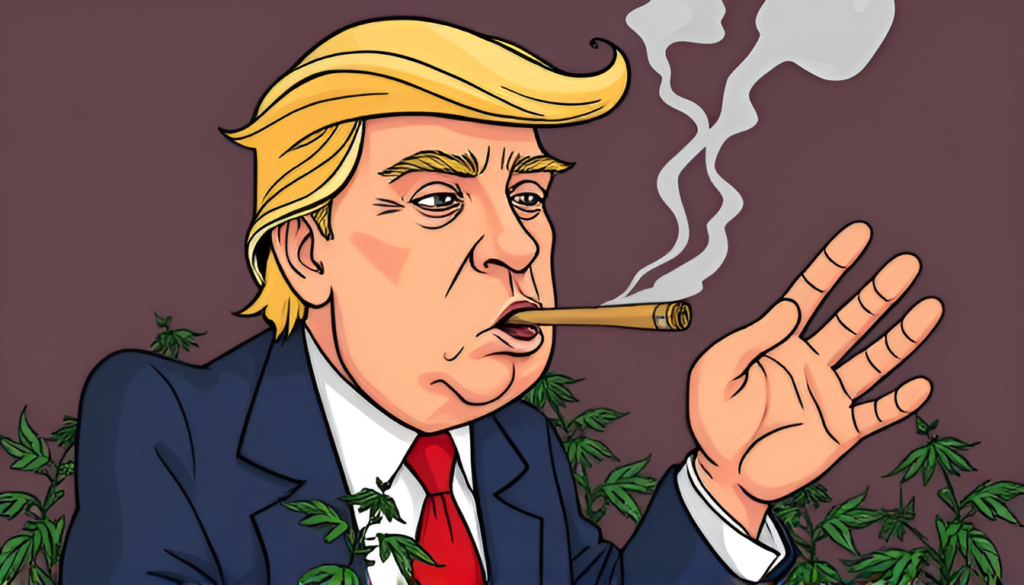
As Trump returns to the political stage, marijuana policy is once again in the spotlight. Under his first administration, the cannabis industry was caught between hope and frustration, with Trump offering a mixed bag of support for medical marijuana while maintaining a skeptical view of recreational use. But as the 2024 election has completed, his stance on weed seems to be shifting, leaving us wondering: will Trump push forward with marijuana reform, or will he drag us backward into the old “war on drugs” days?
In the past, he was critical of recreational marijuana, but he seemed okay with medical cannabis. His public flip-flopping has left many questioning whether his recent shift toward support for marijuana legalization is genuine or just a political move to tap into growing public support. With 88% of Americans now backing marijuana legalization in some form, it’s clear the pressure is building.
Take Florida’s Amendment 3, for example. This was supposed to be the big one: a ballot measure that would have legalized recreational marijuana for adults 21 and older. Trump, a longtime Florida resident, publicly endorsed the measure, even saying, “As a Floridian, I will be voting yes on Amendment 3 this November.” It was a surprising moment of support from a man who once called the idea of legalization a “bad” one. But despite his vocal backing, Amendment 3 failed, striking a blow to the cannabis movement in one of the nation’s largest states.
The defeat in Florida is a stark reminder of how cold marijuana policy still is in the U.S. Even as public support for legalization surges, conservative strongholds continue to push back. Trump’s move to endorse the amendment was likely a strategic effort to court younger, pro-cannabis voters, but it also showcased his tendency to jump on political trends without fully committing. In his public statements, he’s emphasized the importance of ending “needless arrests and incarcerations” for marijuana possession, yet there’s little sign of federal action that would actually make significant changes to the law.
But Trump’s views on marijuana aren’t entirely passive. He’s also thrown his weight behind the idea of rescheduling marijuana, moving it from a Schedule I to a Schedule III drug. This would be a significant step, acknowledging the medical benefits of cannabis and opening the door to more research and accessibility. Currently, Schedule I drugs are those deemed to have “no accepted medical use,” putting marijuana in the same category as heroin and ecstasy. Schedule III drugs, like ketamine and steroids, have a recognized medical use and a lower risk of abuse. Trump’s push for rescheduling could pave the way for a more scientifically grounded approach to cannabis in the future, though this would require significant cooperation across the federal government—a scenario that remains uncertain.
So, where does that leave us? Trump’s second term could either be a pivotal moment for federal marijuana reform or a return to the same old political games. Despite his endorsement of some state measures and his calls for rescheduling marijuana, Trump’s true commitment to reform is still unclear. With the failure of Amendment 3 in Florida and the ongoing uncertainty in other states, the road to legalization may be longer and rockier than we hoped. Still, with public opinion firmly on the side of reform, one thing is certain: marijuana isn’t going away, no matter how much the political establishment tries to drag its feet. We’ll just have to wait and see whether Trump ends up lighting the joint of progress—or flicking it out the window.
Keep it weird,


